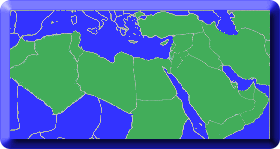
Topics in Middle Eastern and North African Economies
Document Type
Article
Publication Date
5-1-2020
Journal Title
Topics in Middle Eastern and North African Economies
Volume
22
Issue
1
Publisher
Middle East Economic Association and Loyola University Chicago
Abstract
Most governments have firmly taken a stance of promoting financial inclusion in the progressive agenda. Access to financial services is aimed at improving allocation of re- sources across small and medium firms insofar as productivity-related effects may enhance the prospects of catching the next ladder of development. Although mostly empirical literature has quantitatively measured the effects of the financial inclusion on aggregate data such as growth or productivity, we know very little of the aforementioned effects on sectorial variates. The contribution of this paper is the estimation of the effect of financial inclusion on the gross capital formation among high- and low-tech sectors by using a panel of eight MENA countries with data for approximately 38 manufacturing industries over the period 2005 onwards; the data's source is United Nations Industrial Development Organization (UNIDO) that comprises 3-digit level sectoral statistics. We use four measures of financial inclusion: size of commercial bank branches, ATMs, borrowers and depositors. We compare the effects by using a sample of emerging markets. The results suggest that for the MENA region the financial inclusion has a negative effect on the relative volatility of gross capital formation; this suggests that financial inclusion measures are more affecting small and medium industries concentrated in the low-R&D-intensity industries. More specifically the study finds that financial inclusion has a positive statistically significant effect on the size of gross capital formation in sectors such as textiles, leather related products, wood and products of wood and furniture industries. Policy considerations can be directed towards expanding financial services to other low-tech industries including fabricated metal products and to the medium-tech division including repair and installation of machinery and equipment industries which provides higher impact on gross capital formation and thereby economic growth.
ISSN
2334-282X
Recommended Citation
Emara, Noha and Rojas Cama, Freddy A., "Sectoral Analysis of Financial Inclusion on Gross Capital Formation: The Case of Selected MENA Countries". Topics in Middle Eastern and North African Economies, electronic journal, 22, 1, Middle East Economic Association and Loyola University Chicago, 2020, http://www.luc.edu/orgs/meea/
Creative Commons License

This work is licensed under a Creative Commons Attribution-Noncommercial-No Derivative Works 3.0 License.
Copyright Statement
© The Author(s), 2020



Comments
Presentation of the articles in the Topics in Middle Eastern and North African Economies was made possible by a limited license granted to Loyola University Chicago and Middle East Economics Association from the authors who have retained all copyrights in the articles.